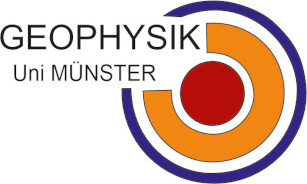Master of Science Geophysics
Overview
The research-oriented, two-years long Master’s course mainly covers the fields of geodynamics, seismology and applied geophysics and therefore it reflects the main areas of research of the Institute of Geophysics. The subjects of the Master’s theses are usually from one of these areas. This ensures a close link between teaching and research. After successful completion of the course of study the degree Master of Science (M.Sc.) in Geophysics is awarded.
The following graphic depicts the general structure of the study course:
| Modules for the Master of Science in Geophysics | ||||||
|
Semester |
1 |
Dynamics, Evolution |
Advanced Methods |
Advanced Methods |
Elective |
Interdisciplinary |
| 2 | ||||||
| 3 |
Professional Specialization and Project Design |
|||||
| 4 |
Master's Project |
|||||
|
M: mandatory module |
EM: elective mandatory module |
|||||
Content of Modules:
- Dynamics, Evolution and Simulation of Geophysical Systems,
Advanced Methods for Investigating the Earth,
Advanced Methods of Applied GeophysicsIn these three modules the knowledge in the three main research areas of the Institute of Geophysics – geodynamics, seismology and applied geophysics - is expanded and brought up to the current state of research. This provides the students with the necessary background to successfully conduct their own research project during the research phase in the second year. - Elective Studies
The three advanced geophysics modules are supplemented by geophysics-related elective studies, which can be chosen from the fields of nonlinear physics, materials physics and geoscience.
- Interdisciplinary Studies
In this module courses from the broad range offered by the departments at the University of Münster can be chosen which are meaningful for the study of geophysics or which provide professional skills.
- Professional Specialization and Project Design and Master’s Project
The crucial element in the professional training of a prospective geophysicist is the extensive research phase in the second year of study. It promotes independent scientific work. In this phase the scientific research is inseparably linked with the acquisition of key skills such as project management, team work and the presentation of scientific results.
More detailed module descriptions can be found in the appendix of the examination regulations of the Master’s course in geophysics (in German).
Application and Approval Procedure
Online Application for the MSc program
Further Information:
- Admission regulations Master Geophysics
- Examination regulations Master Geophysics (enrollment starting vom WS 2020/21)
- Examination regulations Master Geophysics (enrollment before WS 2020/21, German only)
Time table for the summer term 2025*
---
* Subject to changes

